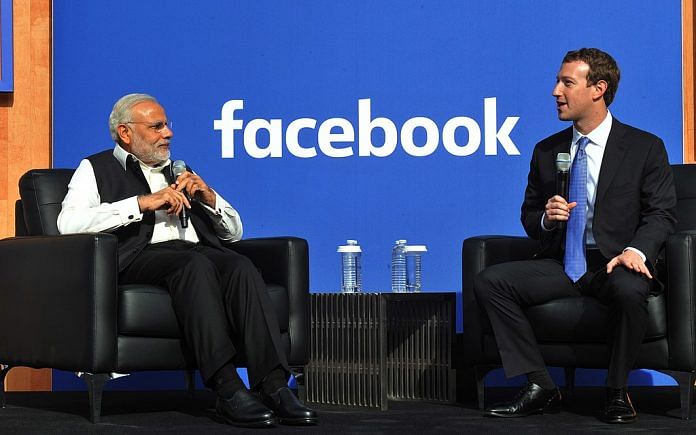
In almost every country across the world, news media has been facing the challenge of dwindling revenues. This has a direct impact on the quality and quantity of journalism, because there’s simply not enough money to hire good journalists, to spend on news gathering, and to report on everything that needs to be reported. Across the world, newspapers and magazines that thrived in hard copy have been forced to shut down, reduce their number of pages, go online, and wither away.
The problem is not the internet. As the attention of readers moved to digital screens, so did advertising. After all, ad revenues haven’t been rising as fast as they should in newspapers because digital ad spends have been rising exponentially. What was a slow process has been hastened by the Covid-19 paranoia about newspapers spreading the virus.
There’s enough and more digital advertising to fund all the journalism that all of us collectively can dream of. The problem is that most of this advertising money goes to two companies: Facebook and Google. What news websites or any kind of content websites earn is a pittance.
When a news headline with a photo, and even an excerpt, comes up on Google or Facebook feed, users get the relevant information even without clicking on the page. So Facebook and Google (and their various allied platforms such as Instagram and YouTube) have replaced the newspaper. People log on to these social media sites partly to know what’s happening in the world.
Click-bait headlines that people complain about exist because of this very reason. With people hooked to social media platforms, advertisers spend money on these platforms. These platforms have incredible amounts of data on what you’re interested in, and sell those data to advertising companies because they don’t respect privacy. If you read an article about electric vehicles, they know you are interested in electric vehicles and will serve you an electric vehicle ad. Naturally, advertisers find such micro-targeting to be more cost-effective than any other kind of advertising.
That’s why even when websites get clicks, they don’t earn the kind of revenue such a large readership would have got in newspaper form. And the readership is huge: even a small news website is read by millions of people these days.
Not all disruption is good
Technological disruption is how the world has progressed. It killed radio for TV, and moved the world from sending telegrams to video calling. The problem is not that the internet could kill newspapers. The problem is that the internet is killing journalism.
This calls for regulatory intervention. Journalism is a public good, the fourth pillar of democracy. A weak news media means fake news will rule the roost. A news media with little financial muscle means strong governments can threaten and subjugate it at the cost of truth-telling. Weak journalism is a sign of a weak democracy.
The ways of Facebook and Google need to be reined in. Europe has been trying to figure this out but the country down under, Australia, has called the bluff of these tech platforms in a daring act.
Australia shows the way
Australia has proposed — not yet passed — a new law that would force tech giants to pay for news content. To make this happen, the law would enable news organisations to negotiate as a bloc with the tech companies. Google has agreed to explore the idea in some form, but Facebook has taken the opposite approach, removing news articles from its platform in Australia. Furthermore, you can’t share a news article directly from any Australian website on Facebook.
This has created an exciting situation where there’s some content that can’t be shared on content-hungry Facebook. This could be a blessing in disguise for news publishers in Australia. If news goes off Facebook and Google, people will have to find other ways to access the content, such as visiting the news websites directly, or subscribing to their email newsletters. This can return the direct advertiser attention to news websites. Why do we need Facebook or Google as middlemen?
What Australia is doing isn’t some experiment the rest of us should sit back and just watch. This is now a global movement, and India must join in. Journalism has to be saved. Currently, if you are a journalist, or just about any kind of content creator, you are mostly working for Facebook or Google for free. If they are generous enough to offer you monetisation and share the revenue, what you earn still amounts to only a pittance. The distribution platforms are getting richer, and journalism is getting poorer.
Australian Prime Minister Scott Morrison has asked Prime Minister Narendra Modi for his support for the Australian media platform bill. This is support that must be given heartily. India must join and strengthen this global movement to save journalism.
News Corp chief Robert Thomson said recently: “New terms of trade will be introduced” in Australia “but that debate now extends across the globe. There is not a single serious digital regulator anywhere in the world who is not examining the opacity of algorithms, the integrity of personal data, the social value of professional journalism, and the dysfunctional digital ad market…”. India must lose no time in joining this debate.
The author is a contributing editor. Views are personal.
Subscribe to our channels on YouTube & Telegram
Why news media is in crisis & How you can fix it
India needs free, fair, non-hyphenated and questioning journalism even more as it faces multiple crises.
But the news media is in a crisis of its own. There have been brutal layoffs and pay-cuts. The best of journalism is shrinking, yielding to crude prime-time spectacle.
ThePrint has the finest young reporters, columnists and editors working for it. Sustaining journalism of this quality needs smart and thinking people like you to pay for it. Whether you live in India or overseas, you can do it here.